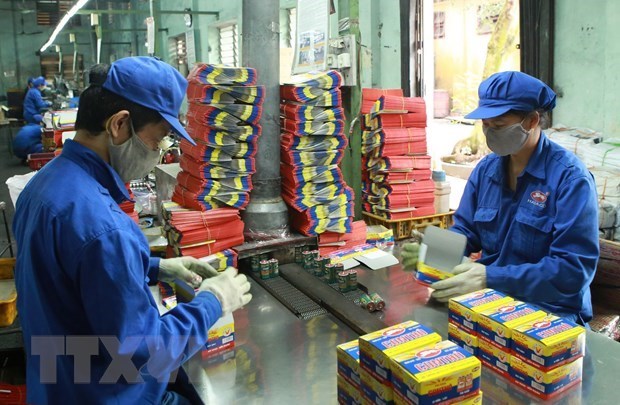
Illustrative image (Source: VNA)
According to the Ministry of Finance’s Department of Corporate Finance, in the first eight months of 2020, the department received the reports approving equitisation plans of six enterprises.
The Committee for Management of State Capital at Enterprises (CMSC) has completed the announcement of corporate value of one corporation – the mother company of Power Generation Corporation 2 (EVNGENCO 2).
From 2016 to August 2020, 177 enterprises had had their equitisation plans approved with total value of over 443.5 trillion VND (19 billion USD), including 207.1 trillion VND of State capital.
In the rest of the year, the number of enterprises subjected to equitisation in line with the plan is 91, including 13 in Hanoi and 38 in Ho Chi Minh City. The CMSC is responsible for the equitisation of six enterprises, the Ministry of Industry and Trade four and the Ministry of Construction two.
Economist held that in order to complete the equitisation of 91 firms between now and the year-end, each month, the country must equitise 22 enterprises, which is infeasible. Meanwhile, equitisation is the only way to enhance the efficiency of State-owned enterprises and optimise resources for the national economy.
Economist Nguyen Tri Hieu said enterprises have given various reasons for the slow implementation of their equitisation plans. Meanwhile, Dang Quyet Tien, head of the Department of Corporate Finance blamed impacts of COVID-19 pandemic for equitisation delays.
Besides, those targetedthis time are major economic groups and corporations with complicated financial situation, making it difficult to evaluate the corporate value, he said, adding that newly-issued regulations related to equitisation and capital divestment with tighter procedures also prolong the time for the work.
Particularly, a recent report of the Department of Corporate Finance showed that some ministries, sectors, localities, Stated-owned economic groups, corporations and companies have yet to work hard in this regard.
Tien said that they have balked at processing the equitisation without daring to take the responsibility, while taking difficulties as reasons to delay the equitisation.
Meanwhile, economist Le Quoc Phuong held that there are still “loopholes” in related regulations, leading to a slow progress of the scheme.
In that context, the Ministry of Finance has asked SOEs subjected toequitisation to speed up the reviewing of their land to facilitate the evaluation of corporate value, thus completing the financial settlement and announcement of corporate value within 2020.
Agencies representing State capital ownership at enterprises should complete divestment within 2020, the ministry requested, asking leaders of ministries, ministry-level agencies, Government agencies and centrally-run localities to drastically direct the SOE equitisation, divestment and restructuring in line with the plan, and be responsible for the work’s results.
Phuong underlined the urgent need to fix the “loopholes” in regulations, making the equitisation process tighter and under stronger control and supervision./.
VNA
 Retailer brings Vietnamese products closer to consumers in Canada
Retailer brings Vietnamese products closer to consumers in Canada



